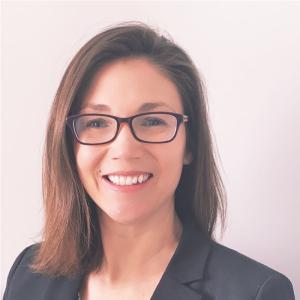Even when things are going well, dealing with health insurance ranks pretty low on the list of things most people want to do. Add in a serious medical condition and the stress and challenges that often presents, and what was already frustrating becomes even more so. But for people living with ALS and their families, working with health insurance providers at all stages of the disease is a necessity to obtain the critical care and services they need.

“Let’s face it, insurance isn’t the easiest subject for anyone to understand as it can be very complex from premiums to deductibles to out of pocket max payments, and pharmacy coverage based on tier medication systems, just to name a few,” says Shannon Todd, an ALS Association managing director of care services based in Omaha, Nebraska. “People living with ALS face specific challenges with accessing equipment, technology, and newly approved FDA medications.”
The unique needs of a person with ALS often don’t fit nicely into systems insurers prefer to use, causing frustration and stress for those needing care and those who care for them. While there is no surefire, one-size-fits-all solution to these challenges, there is help available.
The ALS Association, local ALS care teams, and ALS multidisciplinary clinics can all be helpful in getting access to the care and equipment needed for people with ALS to live their lives as they choose. “Our ALS care teams and ALS centers are great because they work with people with ALS and their insurers on a regular basis, so they have a great understanding of how to manage the process and how to deal with the challenges that arise, because there will be challenges,” says Todd.
The knowledge and experience the ALS care team brings can be beneficial for needs big and small as they often know more about the insurance process and requirements than the average health care provider. “For example, if you need a hospital bed, it is not as simple as the physician writing a prescription,” Todd says. “The physician is required to see you in a face-to-face visit and the physician’s notes must include specific language such as need for head elevation and other information in order for insurance to approve that piece of equipment.”
In many cases, ALS care teams can also assist in skipping the middleman and connecting with someone who can actually help with their needs. “For people that have private insurance or managed Medicare or Medicaid insurance through private insurance companies, with a diagnosis of ALS, you can request a case manager and have a direct line to a nurse or social worker that can help you versus going through customer service. These case managers can assist in determining where the claim process is as well as help you understand your insurance’s processes and requirements,” Todd says. “Your insurer will also continue to work closely with your provider during the claims process and your provider will be responsible for submitting information during the claims or appeals process and participating in the peer-to-peer review if needed.”

The Association also partners with the Patient Advocate Foundation (PAF) to provide The ALS Medicare Resource Line, designed to provide individualized case management assistance for people living with ALS, their family members and caregivers. The line provides free, direct telephone access to Medicare experts who can help with navigating eligibility and enrollment in disability benefit.
With the help of ALS advocates everywhere, we are working diligently to help ease these challenges for people living with ALS and their families. No one should have to face ALS alone, and we are doing whatever it takes to make sure no one has to.
To find more information about navigating health insurance benefits while living with ALS, visit our website HERE.
To learn more about how you can become an advocate and join the fight to help the ALS community, visit our website HERE.
To continue to follow stories about people living with ALS in the community and learn more about the disease, subscribe to receive our weekly blogs in your inbox HERE or follow us at als.org/blog.


Join the conversation. Please comment below.